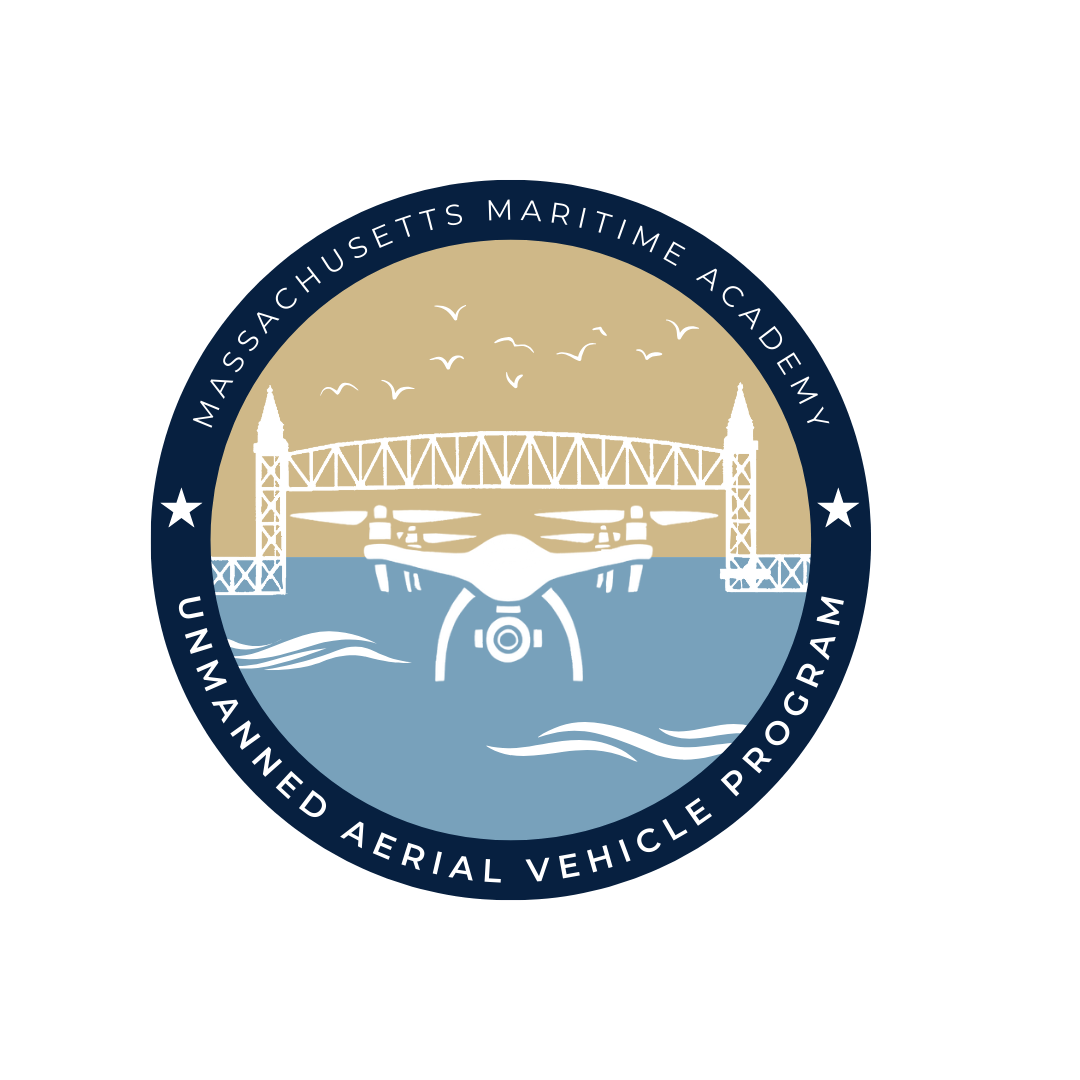Menu toggle
Contact
George Cadwalader, Jr.
Department Chair
gcadwalader@maritime.edu
(508) 830-5386
Degree Overview
Emergency and disaster-related challenges impact individuals, families, businesses, and governments around the globe. Our Emergency Management and Homeland Security (EMHS) program equips students with the knowledge and skills needed for careers in both the public and private sectors—including federal, state, and local government, law enforcement, fire services, and the military. The curriculum emphasizes the four key phases of emergency management: mitigation, preparedness, response, and recovery. Students also have the option to pursue a minor in Homeland Security.
Our curriculum recognizes that classroom instruction must be complemented by practical and hands-on learning opportunities. We partner with communities and agencies throughout Massachusetts and neighboring states to support exercises and volunteer activities related to Emergency Management and Homeland Security. All first-year students are required to participate in a two-week experiential learning trip led by our faculty. This service-learning program integrates students with volunteer organizations that help communities prepare for and recover from disasters and improve resiliency. Previous partnerships have included Habitat for Humanity in Florida and Team Rubicon in California. This year's freshmen will be travelling to Asheville, North Carolina to help with Hurricane Helene recovery efforts. Experiential learning destinations are subject to change annually as we adjust to real-world events, but meaningful work, camaraderie, and team-building remain the pillars of each trip. In addition, as cadets advance through the curriculum, they are required to complete at least two cooperative education (co-op) placements, gaining real-world experience in the field. To further prepare for professional success, cadets may earn certifications such as: Emergency Medical Technician (EMT) – Massachusetts, Firefighter I and II (in partnership with the Onset Fire Department), and Paramedic Certification (in partnership with the Comprehensive Medical Training Institute).
The Emergency Management (EM) Program combines rigorous academics with hands-on professional experience, preparing students to meet real-world challenges in government, industry, and non-governmental organizations. Students apply their classroom knowledge in practical settings, gaining valuable experience in our state-of-the-art Emergency Operations Training Center. In their senior year, students design and lead discussion-based emergency management scenarios for towns, cities, and agencies across the Commonwealth, collaborating closely with experienced EM professionals.
As an Emergency Management major, you will:
- Strengthen and support communities in times of crisis
- Collaborate with experienced emergency management professionals in real-world settings
- Explore both cutting-edge and traditional emergency management technologies
- Develop a comprehensive understanding of EM policies, practices, and protocols
- Master the Incident Command System—the foundation of all emergency management operations
- Prepare to lead, respond, and make a meaningful impact when it matters most
Academic Requirements
To be considered for admission to Massachusetts Maritime Academy, candidates must be capable of college-level study and meet the minimum requirements below:
- 4 years of English
- 4 years of Mathematics (At least one course must be completed during senior year. *):
- Algebra I
- Geometry
- Algebra II
- Precalc/Trigonometry
- 3 years of Science: At least three of these courses must include labs. Technology/Engineering courses must be designated as science courses (taken for science credit) by the high school:
- Chemistry
- Physics
- 2 years of Social Science: Including one course in United States History
- 2 years of Foreign Language: Two sequential, one-year courses in either a classical or modern language
- A foreign language waiver may be given to students attending a vocational technical high school or those who have received a waiver from their high school.
- 2 Elective Courses
Test Requirements
The submission of SAT or ACT scores is optional. For more information, please review our Test Optional Policy.
If you choose to submit your standardized test scores, you must submit official test scores from either The College Board (SAT) or The ACT (ACT). When taking the exam, have your scores sent directly to Massachusetts Maritime Academy. Please note, score requests can take between 2-4 weeks to be delivered and added to a student's application.
- Average SAT Score: 1050-1100* (SAT Code: 3515)
- Average ACT Score: 22-23 (ACT Code: 1856)
- *We will superscore your SAT scores.
How to prepare for this major:
- Four years of college prep math. Pre-calculus is strongly encouraged.
- 3-4 years of lab science, including Biology, Chemistry and Physics.
- An overall GPA of 3.0 or above.
- Final grade of B or better in all math, science, engineering related courses.
A Bachelor of Science in Emergency Management opens the door to a wide range of dynamic and meaningful career paths. Our graduates are making an impact in critical sectors that keep communities safe, resilient, and prepared for the unexpected. Recent alumni have secured positions in state and local emergency management agencies, hospital emergency preparedness teams, fire and law enforcement departments, and all branches of the U.S. military—both as commissioned officers and enlisted personnel. Others are working with private companies and nonprofit organizations as emergency planners, humanitarian aid specialists, safety consultants, and more.
Career fields our graduates pursue include:
- Local, State, and Federal Emergency Management Agencies
- Homeland Security
- Public Safety (Fire, Police, EMS)
- Military Service
- Humanitarian Aid & Non-Governmental Organizations (NGOs)
- Environmental Health & Safety
- Public Health
- Emergency Management Consulting
- Crisis Communications
- Cybersecurity
- Business Continuity & Risk Management
- Hazardous Materials & Occupational Safety
Whether responding to natural disasters, managing public health crises, or strengthening organizational resilience, our graduates are helping to lead the way in building safer, more prepared communities across the globe.
- Explore the Core of Emergency Management
- Master the Four Phases
- Gain a comprehensive understanding of the four phases of Emergency Management—mitigation, preparedness, response, and recovery—as they are implemented through an All-Hazards and Whole Community approach.
- Integrate Scientific Principles Examine the scientific foundations that inform the development of effective mitigation and preparedness policies, strategies, and tactics.
- Strengthen Response and Recovery Understand the scientific and operational principles behind designing multi-level response and recovery strategies that are scalable and adaptable.
- Evaluate Social Science Dimensions Analyze the role of social science in Emergency Management, focusing on the dynamic interactions between government, the private sector, non-governmental organizations, communities, and individuals.
- Apply the Incident Command System (ICS) Learn to implement the ICS framework and explore its critical alignment with national preparedness goals and coordinated emergency response.
- Leverage Emerging Technologies Explore and apply innovative technologies and tools across all phases of Emergency Management to enhance situational awareness, coordination, and decision-making.
As an Emergency Management major, you’ll gain hands-on experience managing simulated crises and real-world scenarios. In our cutting-edge Emergency Management Simulation Center, you’ll apply your classroom learning using both established and emerging technologies in realistic environments.
The Emergency Management program requires students to complete one two-week public service experiential learning trip during their first year alongside other members of their class. Destinations are subject to change as we adjust to real-world events. Previous trips have supported Habitat for Humanity in Florida and Team Rubicon in California. As students progress in their studies, they are also required to participate in two 240-hour cooperative education (co-op) placements, gaining real-world experience in the field. These are typically completed during summer and winter breaks. Many students choose to complete additional co-ops for expanded experience. For students who wish to study abroad, we offer a one-month winter trip to Guatemala that provides Spanish language instruction, cultural immersion, and service projects supporting charitable and educational organizations. In addition, in the spring of their third year, students are eligible to participate in a semester abroad exchange program at University College in Copenhagen, Denmark.
The Emergency Management program prepares students to lead in times of crisis—whether natural disasters, public health emergencies, or complex security challenges. With a unique blend of classroom learning and hands-on training, cadets develop the skills needed to plan, respond, and recover when it matters most. Students gain experience in risk assessment, disaster preparedness, homeland security, humanitarian response, and crisis leadership. Beyond the classroom, internships and co-op opportunities connect cadets with government agencies, private companies, and nonprofit organizations—giving them real-world insight and professional experience. Graduates enter high-demand careers across emergency management, public safety, business continuity, and security, making a meaningful difference in protecting communities and organizations worldwide.
Emergency Management
Program Highlights & Partnerships

The program is conducted in partnership with the Onset Fire Department and provides the opportunity for those selected to be trained and certified as firefighters and gain real-world, practical experience responding to emergencies with the Onset Fire Department.
Learn More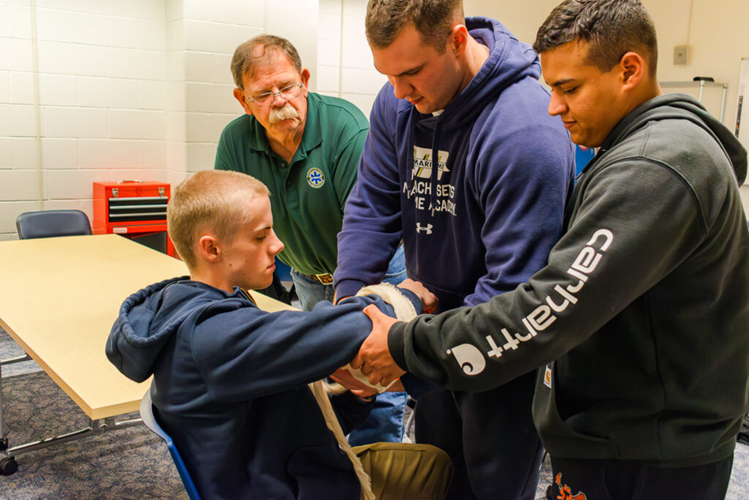
The EMT course is taught in a hybrid model, with cadets participating in class one evening per week and requires significant online asynchronous homework and quizzes. The course is open to all MMA cadets.
Learn More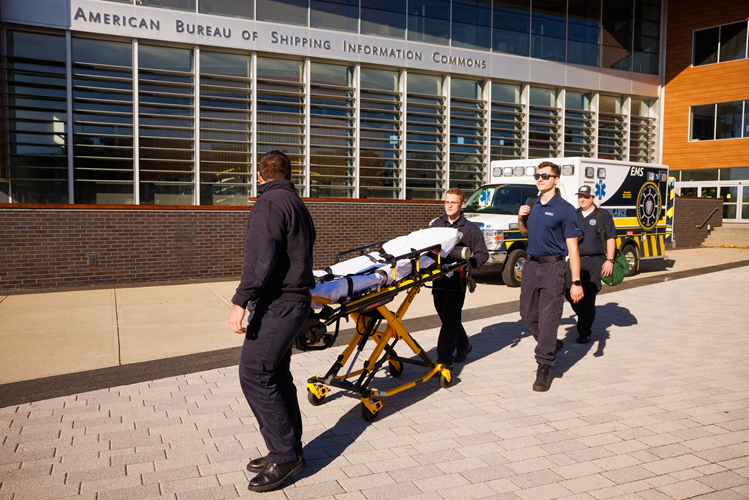
Beginning in the Fall 2025 Semester, MMA will partner with the Comprehensive Medical Teaching Institute (CMTI) to offer paramedic training on campus.
Learn MoreHear from our students
Additional Resources
Our Organization
This chapter was created with the intent of providing the emergency management undergraduate students at Massachusetts Maritime Academy with opportunities for networking and enhancement in their emergency management careers. Club members will need to register as student members through the IAEM website. The cost for student membership is $55 per year.
Benefits of IAEM Membership
- Access to the largest network of top emergency management experts who can offer solutions, guidance, and assistance.
- Access to IAEM conferences, webinars, workshops, and other educational opportunities.
- Scholarship opportunities.
- Access to the IAEM Jobs Board for internships and job opportunities.
- Advanced Emergency Manager (AEM) or Certified Emergency Manager (CEM) certification reduced cost and application access.
- Membership to IAEM committees & caucuses.
Benefits of being a Student Chapter Member
- Webinars
- Trainings
- Full-Scale Exercises
- Workshops
- Conferences (Local & National)
- Table-Top Exercises
- EOC Site Visits
- Guest Speakers
Chapter Officers
- Logan Smith - President
- Kinsley Trout - Vice President
- Katherine Dowling - Secretary/Public Information Officer
- Eli Jache - Treasurer
- Christopher Cecil - Training Lead
Faculty Advisor
- Dr. Samantha Montano
Social Media
- LinkedIn - www.linkedin.com/in/mmaiaem
- Instagram - @mmaiaem
- X (Twitter) - https://twitter.com/mmaiaem

- Emergency Medical Technician (EMT)
- Paramedic
- Basic Firefighting
- Firefighter Program, (On-Call)
- Occupational Safety and Health Administration (OSHA) 40
Some of our EM courses require certifications through EMI's independent studies.
These certifications include, but are not limited to:
- IS-120.C: An Introduction to Exercises
- IS-700.B: An Introduction to National Incident Management System
- IS-800.D: National Response Framework, An Introduction
- IS-922: Applications of GIS for Emergency Management
Massachusetts Maritime’s Emergency Management department is continuing to build on a rich legacy of technology-based education. Our goal is to be known as one of the top technology-focused EM programs in the country, and for our graduates to be recognized as emergent technology-focused practitioners. Several new initiatives are underway that are intended to expand our students’ technological experiences and world view.
While our courses will continue to teach the “legacy” technologies of EM (e.g., ALOHA, CAMEO, HAZUS, MARPLOT, WebEOC, etc.), we are rigorously introducing next generation technologies such as ArcGIS Online, Crimemapping.com; Digital Humanitarian Network; Disaster Alert; Facebook Crisis; GeoMAC, Global Hawk; Global Hazards Information Network (GHIN); Global Terrorism Database; Humanitarian OpenStreetMap (HOT); HumanitarianResponse.info; InaSAFE; Landsat; ReliefWeb; Scan Eagle; Story Maps; ThinkHazard!; USDA Active Fire Mapping; and World Bank Open Learning Campus. We are especially focused on emerging social media and crowdsourcing-based technologies, and UAS technologies. We are currently in the design stage of introducing new courses in those areas.
Massachusetts Maritime Academy's UAS Corps (established 2019) is a student-governed organization that provides Emergency Management majors an opportunity to learn about UAS capabilities, operations, principles, and FAA regulations, as well as apply those lessons through support operations with local emergency management agencies. For more information, contact Dr. Victor Wang at vwang@maritime.edu.
For decades, Massachusetts Maritime has been highly regarded for its use of ship and radar simulators to educate merchant mariners. Our Emergency Management department is continuing that legacy. MMA is invested 1.6M dollars in our Emergency Operations Training Center (EOTC). The EOTC is the backbone of our technologies initiative, providing students with the opportunity to apply both legacy technologies and emerging technologies in a near real-world environment. Students apply tactical and strategic decision making, use emergency response applications to establish and maintain response organizations and execute decision making processes involving representatives of multiple agencies, elected officials, the private sector, technical experts and volunteer organizations. It enhances the undergraduate and graduate curriculum and reinforces the Academy as a professional center of excellence for EM in New England.
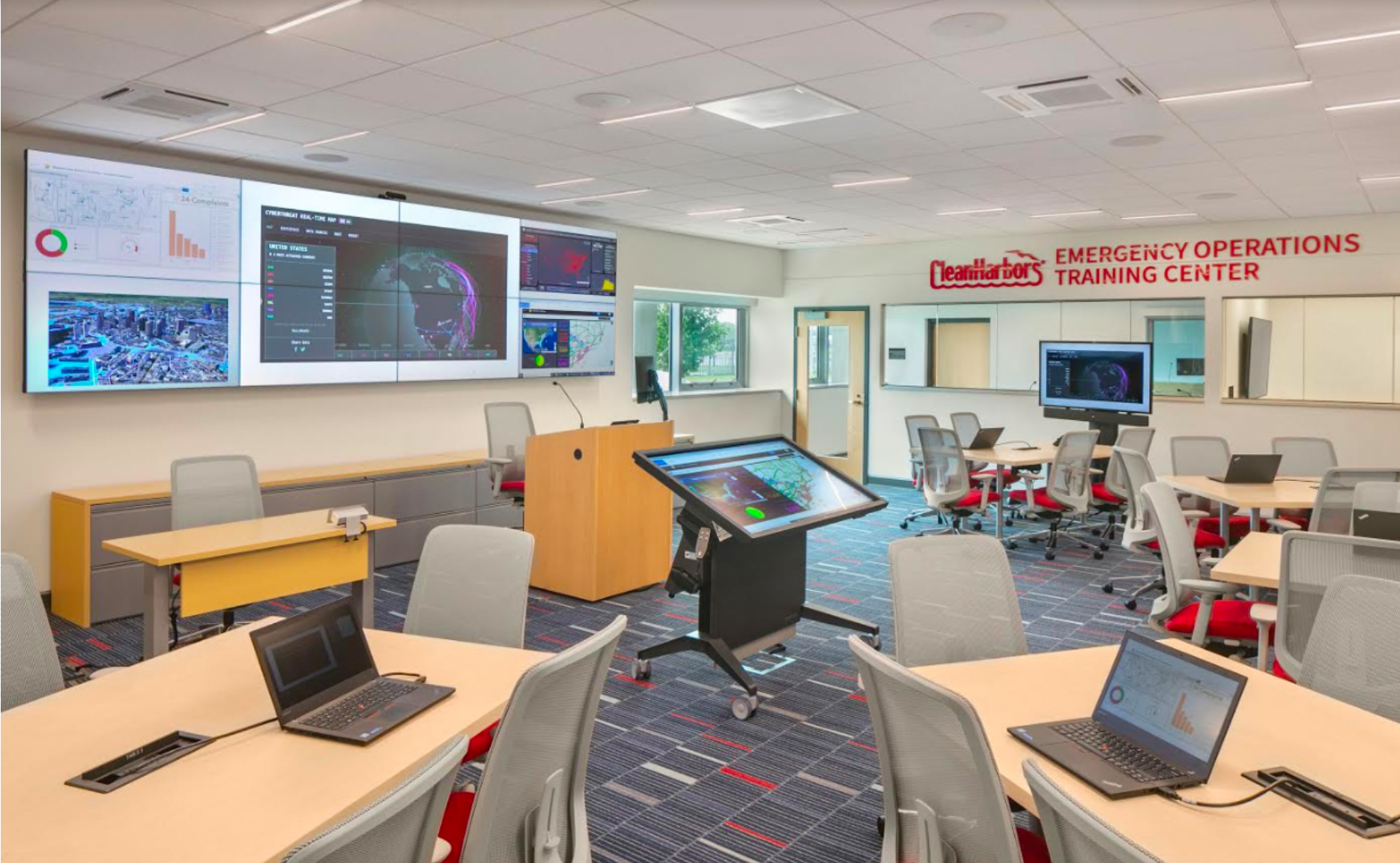
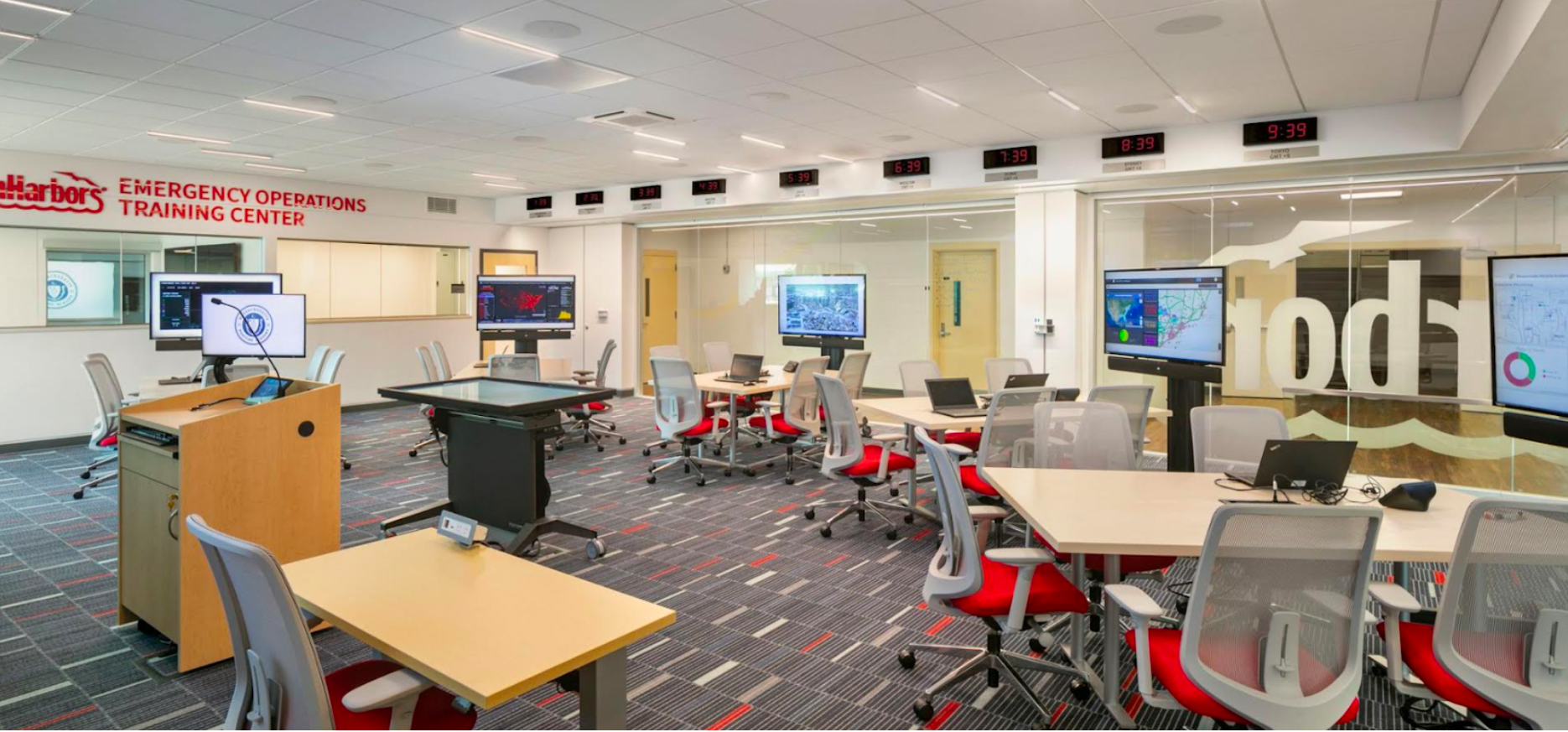
Stay up-to-date
News, Blogs & More
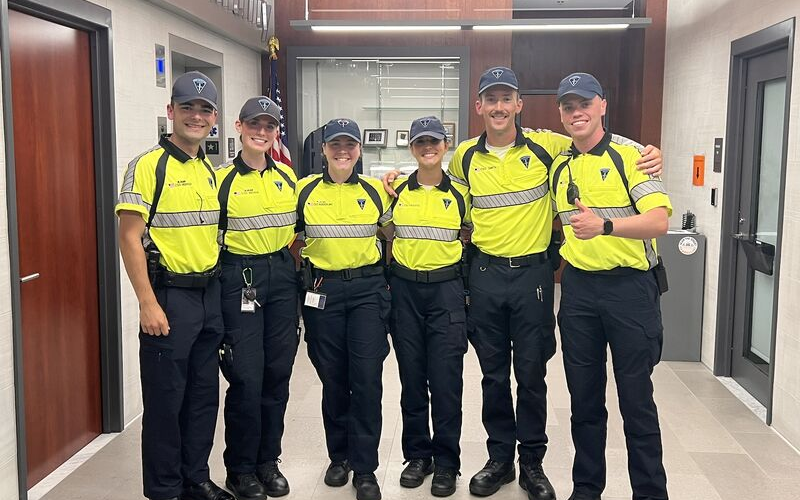
Stay up to date with the latest news, events, and achievements from the Emergency Management Department at Massachusetts Maritime Academy. From global experiential learning trips and industry partnerships to student success stories and faculty insights, this newsletter highlights the dynamic, global-focused education that prepares our cadets to lead in the maritime and logistics industries.
Learn More
In January 2025, Captain Lennon, Professor Cadawlader, and 12 cadets participated in a month-long program in Guatemala that combined intensive Spanish instruction with humanitarian service. For many, it was their first international experience, challenging them to navigate a Spanish-speaking country with limited language skills. The program highlighted the core of emergency management—building empathy across differences—while offering firsthand insight into the impact of language barriers, generational poverty, and global challenges. Through cultural immersion, the cadets gained skills and perspectives beyond the classroom, preparing them to better serve diverse communities as future emergency management professionals.
Learn More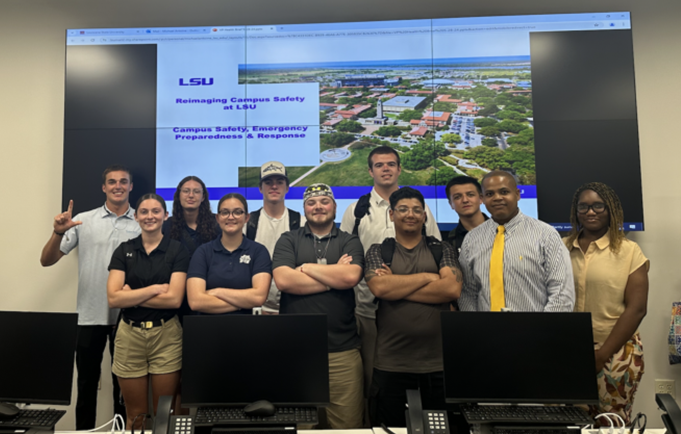
Cadets traveled to New Orleans for a hands-on learning experience that combined service, cultural exploration, and professional development. While there, they engaged in community projects, gained insight into the city’s unique challenges with emergency management and resilience, and explored the cultural richness that defines New Orleans. The trip allowed cadets to apply their classroom knowledge in real-world settings while strengthening teamwork and leadership skills.
Learn More
Request Information
Gain the skills you need by joining the Massachusetts Maritime Academy, a fully accredited four-year co-educational state university offering Bachelor and Master of Science degrees. Massachusetts Maritime Academy is highly regarded in the worldwide maritime industry and beyond and is equipped with state-of-the-art technology to train the next generation of industry leaders.
Learn More
Connect
There are so many ways to explore life as a future Buccaneer! Visit campus for an in-person tour, attend a virtual event, or chat with a current cadet or your admissions counselor one-on-one. Get answers about the admissions process, learn more about our majors and discover opportunities that will shape your college experience. Check out the options below to make connections and get to know Massachusetts Maritime Academy.
Learn More
Visit Massachusetts Maritime Academy
There is no better way to learn about the Academy than by visiting our beautiful, waterfront campus! Currently, campus is open for in-person tours available on a first-come, first-served basis. To register for a campus tour you will need to create an account and search under Events. If you already have an application portal, please log in using your existing credentials.
Learn More



